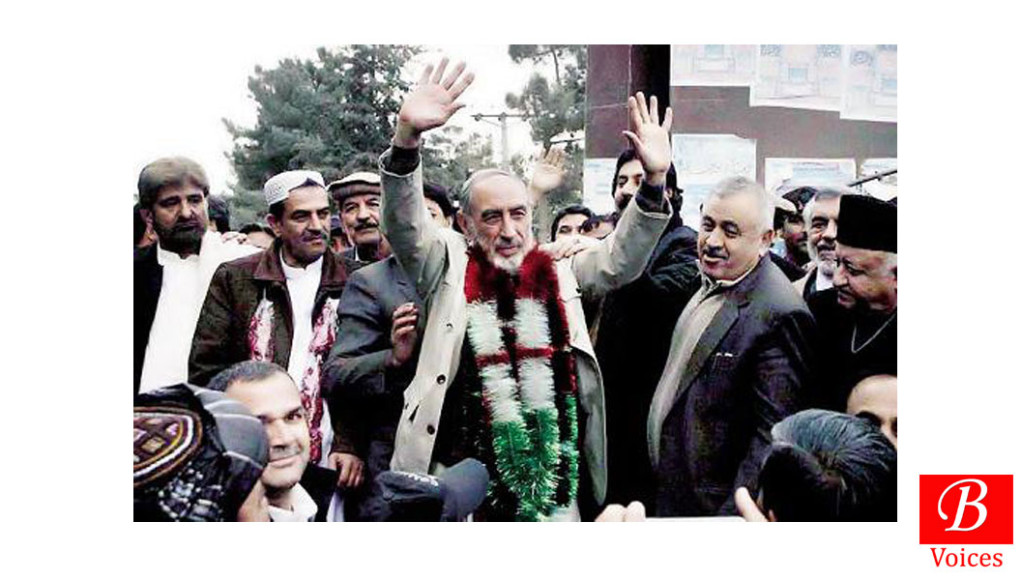 Muhammad Javed Siddique
Muhammad Javed Siddique
The Local Government is the third tier of the democratic system of governance. It provides the facilities to the people on their doorsteps in different terms, but in Pakistan, we are up till now in the experimental stage.
In the history of Pakistan, only the Military Governments had established the Local Government institutions. In this regard, the first initiative was taken by the then President Ayub Khan that was well known as Basic Democracy, introduced by an army regime in 1959. The second step was taken by General Zia ul Haq by conducting the Local Bodies elections in September 1979. The third step was taken by General Pervaiz Musharraf in 2001.
The last Military regime’s local bodies had enjoyed more executive, financial and political powers. The federal government allocated Rs.32 billions to the local governments in 2002. These funds were deposited in the accounts of district governments. The districts governments further distributed these funds to Tehsil and Union Councils. In addition to the fiscal transfer from the province, the local governments were allowed to generate money from their own sources by levying certain taxes, user charges, fee etc.
In the political history of Pakistan, this is the first time when an elected government has taken a step to conduct the local bodies elections. The Government of Balochistan is credited to be the front province among the other three, where these elections conducted first, in December 2013. It was not an easy task to carry out the local bodies’ elections in the occurrence of some inevitable impeding factors, such as the vulnerable law and order situation, administrative hurdles, legal and technical issues. However, while overcoming these impediments, the government successfully conducted new delimitations of the local councils throughout the province and enacted certain supplementary legislations, paving a possibility for the voted houses of local bodies to assume charge of their assigned mandate.
In spite of all above mentioned intentions of provincial government behind the establishment of Local Government System in the province, yet there are many flaws. The incumbent Local Government of Balochistan is just nominal, symbolic and impotent to deliver its obligatory role.
At the time of submission of nomination letters, expectations were high. The potential candidates were thinking that they would be having complete authority to turn the fate of their localities towards prosperity and progress, but the reality is much different than their expectations.
Before going to conduct Local Government elections, the mighty political lot decided to make the exercise toothless by depriving grass root democracy of its life and blood. After the passage of half of their terms, the system yet deprived the lower tier representatives to get the administrative and financial powers. It’s a horrendous fact in our political system that central and provincial governments always tried to not delegate their powers to the local government. On contrary, those were military regimes where the lower tier enjoyed much power as compared to the so-called serving democratic government. But first time an elected government dares to set up local government system that was considered as a ray of hope in political side. Unfortunately again our political monarch clipped its wings by depriving them of needed authority for better service delivery.
A genuine decentralization of power never exercised in Pakistan because Pakistan is an extremely centralized state. Even with the passing of the 18th Amendment, most of the main powers, for example, the power to collect revenue – are still with the centre. It has always been said that the Local Governments in Pakistan does not get the power that it should because it doesn’t have the status of a proper tier in our constitution. Example: The same case in the United States, the local government system is also not recognized by the constitution but that has not stopped the country from empowering its cities or local governance systems. The cities there make their own policies and their own decisions to raise revenues and take steps for economic viability.
Unlike prior mentioned example of the United States, in Pakistan, All the policies are made at the federal or provincial level. The Local Governments do not have the capacity for revenue generation and policy making or its implementation. Even if the Local governments are receiving funding from the Federal or Provincial Governments, more than 90 percent of these funds goes into paying salaries. No money is spent on operation maintenance or capital investments.
In the democracy, the Local Government has its benefits and fruits. It gives opportunities to the remote areas masses through their elected representatives. They raise their voices for their rights and their representatives to highlight the domestic problems through different channels to get the attention of highest authorities.
Our daily issues can be solved only at the local level because that is where we have access to our representatives. We can go and meet our councilor, our mayor. The Local Government also acts as nurseries for nurturing future political cream of the crop that can go up to the provincial and federal levels.
Another bitter reality is that the common man in our society often hesitates to participate and contribute in political activities. Without public participation and mobilization we cannot achieve the desire results of grass root governance. Inculcation of political information and awareness is pivotal to run the Local Government system, effectively. If the people become aware regarding the rules and regulations that apply to them and be aware of their rights, then it would pave the way to get rid of needless fear and increase their chances to take part in political activities smoothly.
If the Government is really people-oriented and democratic then it must empower the Local Government without any delay to bring the dawn of the new political epoch. Empowerment of lower tier representatives, boost the pace of development and progress all over the country on the priority basis. This folk of governance have direct access to the basic and most prior problems faced by the majority of ordinary men and they have a better understanding to solve those efficiently as compared of MPAs and MNAs. In Military regimes, local bodies were empowered. Why the democratic governments in Pakistan always hesitate to do so?
Writer is Master’s in Political Science from the University of Karachi and working as a General Councilor in incumbent Local Government District Gwadar, Balochistan.
Share your comments!








